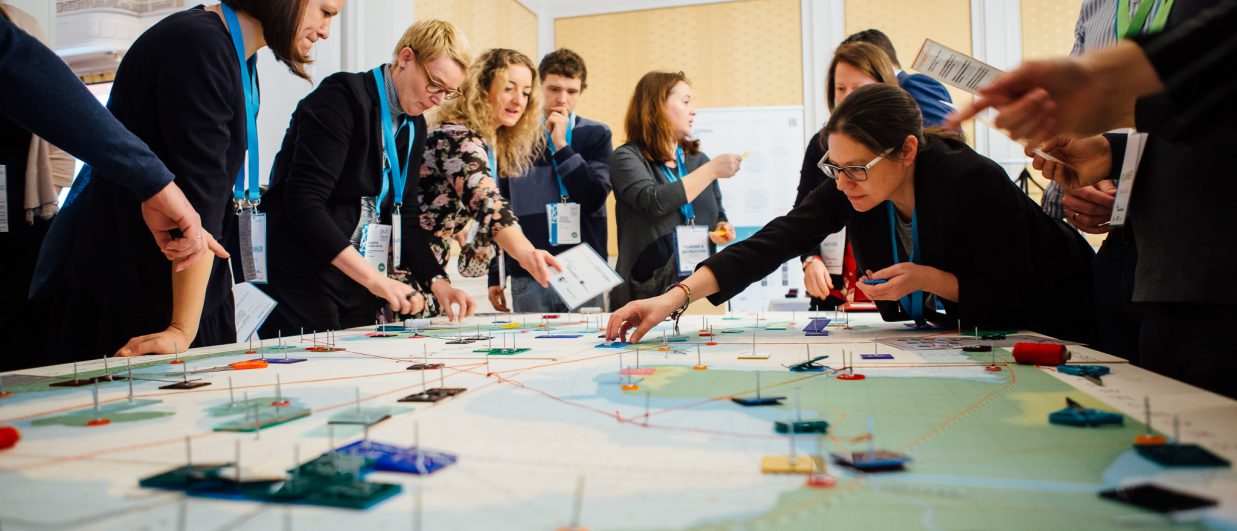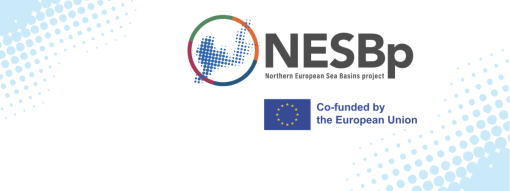Energy transition and biodiversity in MSP
Energy Transition and Biodiversity in MSP
Work Package co-leaders: The Federal Maritime and Hydrographic Agency (Germany) and HELCOM
Partners: Maritime Institute of Maritime University in Gdynia (Poland), University of Gothenburg / Swedish Institute for the Marine Environment, Swedish Agency for Marine and Water Management, Ministry of Infrastructure and Water Management (Netherlands), Cerema (France)
Due to the rapid development of maritime economic sector in general and, particularly, offshore renewables the marine environment is under increasing pressure, which is exacerbated by climate change. In order to reach our energy and climate targets, further areas for offshore renewable energies need to be designated. However, the space in the North and Baltic Sea is finite and the demands of both traditional and non-traditional marine uses are increasing further. There is a need to better understand the potential ecological limits of large-scale wind development in transboundary context and the spatial implications related to other uses.
In order to realize the energy potential of the North and Baltic Seas, further work is needed in the field of maritime spatial planning and environmental (impact) assessments to be able to fully utilize the potential of the marine ecosystem of the Seas to mitigate climate change. This requires an integrated approach and close cooperation between responsible authorities for energy, maritime spatial planning and the environment. The aim is to:
- Provide concrete methodological recommendations for the application of ecosystem-based approach in MSP with a focus on the most urgent issue of maritime development (growth of maritime sector and protection of the marine environment) and how are cumulative effects addressed.
- Support planners and policy makers with the state of knowledge and concrete methods for the sustainable energy transition and protection of biodiversity in MSP based on experiences in the North and Baltic Seas.
- Facilitate the application of ecosystem-based approach in MSP providing concrete recommendations for future nature restoration efforts at sea, while at the same time investigating connectivity and scale-up possibilities for those efforts, allowing for improved collaboration and coordination across administrations in taking effective and coherent conservation efforts at the sea basin level.
Results of the work related to mitigation measures and CIA methodologies contribute to strengthening the application of ecosystem-based approach in the North and Baltic Sea basins and organization of respective cross sea basin dialog. In its turn the dialog will serve for validation of the results and their integration into MSP policy framework in north European sea basins.
Work will be closely cooperated with project work package “Multi-use in practice” cross-fertilizing such key aspects of sustainable energy transition as minimization of cumulative impact from multi-use of marine areas in Mariparks with the development of respective mitigation measures safeguarding biodiversity in the marine ecosystem.
Finally, a continuous two-way communication and joint consideration of data requirements for practical application of EBA in MSP will be established with project work package “Knowledge transfer and sharing” to facilitate methodological development, strengthen data transfer and ensure the use of the best available knowledge.
Work Package tasks:
Task 3.1 A glossary on the terminology related to the Energy transition and biodiversity
Task 3.2 Overview on actions for enhancement of nature conservation in MSP
Task 3.3 Mitigation measures – a catalogue and GAP-analyses on mitigation measures
Task 3.4 Cumulative Impact Assessment at North Sea Basin level
Work package contact: Philipp Arndt, The Federal Maritime and Hydrographic Agency (Germany) [philipp.arndt@bsh.de] and Dmitry Frank-Kamenetsky, HELCOM [dmitry.frank-kamenetsky@helcom.fi]


